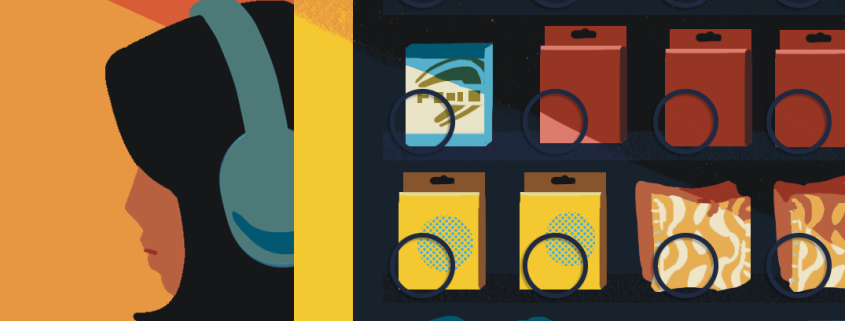USC doesn’t do enough to promote safe sex

Did you know that USC has a vending machine that sells pregnancy tests, off-brand Plan B, tampons and other sex-related items? It’s the product of a partnership between USC Pharmacy and USC Student Health. Located in King Hall across from the Lyon Center, the vending machine offers a wide variety of other general health-related products as well. Even the off-brand Plan B is cheaper than both the name brand and off-brand version sold at Target — at the vending machine, it costs $22 while it costs $46.99 at Target.
Although it’s great that the University has managed to come up with a creative and more cost-effective way for students to access these important resources, there has been little to no publicity about the machine. With a student population of over 49,000, it’s astonishing that so few know the machine exists. And, it’s even more astonishing that only one exists for the entire campus.
This concern comes with the ending of USC’s first-ever Sex Week. The week was filled with forums, conversations and even a sex therapist. The thought was there, but it’s more important for the school to implement these resources around the clock rather than simply pouring all their efforts into one over-the-top showboated week.
It’s rather strange for the University to put so much effort into an initiative like this only for nothing to be promoted properly. In fairness, the machine was established right before the beginning of the coronavirus pandemic, so it’s possible that the publicity wasn’t able to reach its full potential before everything was shut down. Nonetheless, it wouldn’t take too much effort for either USC Pharmacy or Student Health to send out an email that reinvigorates awareness.
The accessibility of this machine promotes a message that it’s okay to have sex, and that it’s okay even to make mistakes as a result. The discreteness of the vendor as a machine rather than a person can also provide a world of comfort for someone already in a difficult situation. It’s an incredible concept — so why not flaunt it? And on top of that, why not place more machines in more locations around campus and in USC Housing?
Colleges cannot assume that young adults entering their campuses already understand the nuances and precautions of having sex. Contrary to popular belief, students are not as sexually active as everyone may think they are. And while that is more than okay, it comes with a lack of knowledge that universities such as USC must understand and address.
For some, sex is still an uncomfortable topic to discuss, and while Sex Week is great for those wanting to learn more about their sexuality, it can leave more apprehensive students at a standstill. Regardless of a student’s experience, discourse and events like Sex Week should always include reliable plugs for valuable resources.
Having access to safe sex-related items can be as easy and accessible as grabbing a Coke from a vending machine. But with only one machine on campus and only one dedicated week to broach the topic, ensuring students understand safe sex is not truly being pushed in a meaningful capacity.
It would be in the student body’s best interest if more of these health-related vending machines were erected in more locations. It’s not fair for the only one to be set in an area not central to the rest of the school. And with the establishment of more machines, there should be a great deal of coverage alongside it.
With an increase in these machines, it could be possible that both Student Health and USC Pharmacy wouldn’t be flooded with as many questions or appointments dealing with sex-related incidents, freeing up time and resources for more pressing issues. At the same time, students could be saving themselves between $20 to $30, as well as the rather strenuous ordeal of asking a Target employee to unlock the box with the Plan B. It’s an all-around win.

